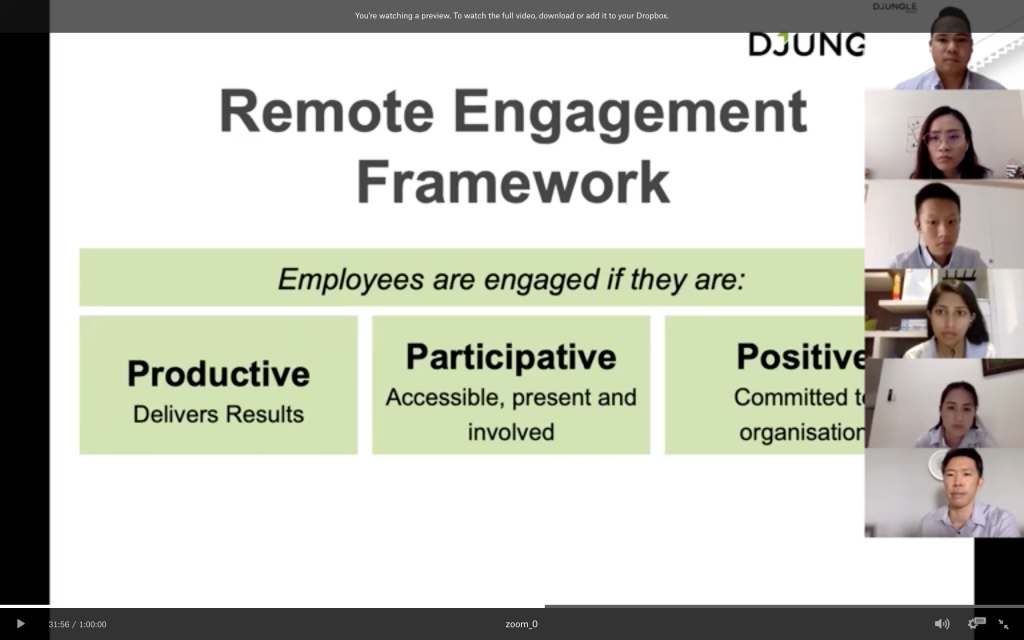Image Unsplash – Simon Abrams
Description : SIKS MIKAH runs through a checklist that helps leaders to deal with an unprecedented crisis like the one close to home now, Covid-19. Some have also found opportunities to move their business forward.
The COVID 19 is a bitch! And that’s putting it mildly given how it has indiscriminately wreaked havoc to global health and economy.
We can curse the crisis to the highest order but it would not change how we are being isolated, thrown into uncertainty and scrambling to keep business going.
Regardless of what businesses we are in – a hawker, a multimillion-dollar listed company or just a struggling SME – the looming uncertainty falls like a blanket over business plans, finances and resources.
From the time machines in factories ground to a halt, the last glass of teh tarik served up at the mamak stall, to the second extension of the Movement Control Order (MCO), it all seems to have happened in the blink of an eye.
This crisis is far from over and leaders do not have the luxury of waiting for directions or indications as to what to do. Instead, they have to live with an extra layer of pressure, compared with their employees, which is probably many times more intense.
Before a leader can shift into this mode, he needs to first practise the airline emergency procedure, that is, to first take care of himself. This means after encountering the initial effects of the crisis like the MCO, leaders need to get a hold of their emotions and embrace the challenges ahead.
In a situation like a lockdown, he needs to anchor himself with a personal routine for exercise, meals and meetings with staff, that can alleviate his anxiety of restless moments because of the lack of structure in working from home.
While there are no case studies or guidelines to take a leader through this unprecedented crisis, a checklist helps to point a direction towards being an agile leader:
Adaptability is a much-needed value for a leader in this ever-changing environment and circumstances. This means the leader must first admit that he doesn’t have all the answers and is willing to take a risk to experiment together with staff in overcoming the challenges. They must be courageous to say “I don’t know the solution, let’s work together to come up with one.”
Be ready to adopt a non-conventional way of doing things. Instead of reacting to environmental circumstances and market forces, he needs to look at his resources, the skills and talents of his employees to come up with new products and services.
At the height of the COVID 19 crisis in Kuala Lumpur, a popular dim sum restaurant was caught with a week’s supply of fresh meat for making the dumplings. Out of desperation, the owner of the restaurant decided to post on social media that she would take online orders and got the help of her family to deliver them.
However, owing to the 10km limit under the MCO and needing to collect enough orders before sending out, the delivery system didn’t work until one customer asked to use an e-hailing delivery service to pick up his order.
This gave the restaurant owner the idea of sharing the cost of delivery with customers and business has been better than before the MCO!
A more inclusive style of leadership can encourage ownership of work amongst employees especially when their ideas have been taken into consideration to form the new business strategy. Leaders need to be open-minded to creative ideas.
Communication on any platform is an important aspect of crisis management as it is the only form of connection to console, advise, instruct and inform when the team is isolated. Leaders can also create small autonomous groups to work together and lend moral support to each other.
It is necessary to communicate frequently, frankly and clearly so that the team will not be left guessing about their own fate and that of the company. Leaders need to empathise with employees’ concern over job security and frustrations. Clear instructions on how to carry on working from home will help to ease them faster into the new normal.
While it is important to talk about work, it is equally important to enquire about the welfare of employees’ families because this could make them feel important and needed.
Subconsciously, some leaders may try to use the old way of doing things by constantly checking and hovering over delegated jobs. To adjust to the new way of doing things, these leaders need to shift their mindset to accepting trust, accountability and independence. The sooner a leader can transform, the quicker the team can adapt.
Humility is underrated in the business world until lately when COVID 19 brought corporate leaders to acknowledge its importance. And under this new normal, humility spawned style of work that encourages ownership, autonomy and trust, is the way forward.
In a crisis, more than ever, leaders need to listen to the views of others, especially their employees; and accept criticisms in order to be more effective in managing the team and in the delegation of work.
To be humble does not mean you are weak or that you cower from a fight. It means knowing the reasons why you don’t need to fight or dominate; to admit and apologise when you are wrong or don’t have all the answers.
During a crisis, you need everyone to be on board and tackle the challenges together and not have some standing by the side and do just what is needed.
Engagement is exhausting but necessary when one is already struggling to hold the team together during a crisis. Leaders can engage with the team by experimenting and learning together. Zoom time takes up a good part of the work-from-home day for many and has replaced the office that employees and management used to meet face-to-face.

A few days after MCO phase 1, Training Consultancy D Jungle People CEO John Kam and his team converted their solutions into webinars with their clients. Although they have planned to do this several years ago, they didn’t do anything about it until they were thrust into it.
John sat with his team to work out the sessions for the webinar and experimented with several programme structures. It was not easy but he kept the team engaged by having a daily catch up meeting with them over zoom.
They are encouraged by the client’s response to their webinars that helped the attendees to share experiences and learn how to deal with the crisis.
The younger executives in the team have also stepped up by taking on new tasks to research and produce new products. John is already preparing them for a post-crisis situation.
Besides engaging with the staff through work, which helps to distract them from the frustration of the lockdown, leaders can also get them thinking about those in their community who may need help such as the poor, aged and homeless. Getting the team to stay positive will build stamina to survive the crisis.
After having decided on the top few decisions out of a hundred, and setting in place a new virtual routine with the staff and the initial fire has died down, the agile leader needs to be visionary. Every crisis presents opportunities that only a visionary leader is able to pick out.
When the crisis ends, the new normal takes over and your old products and services may not be relevant. The visionary leader will see beyond the obvious and start charting his path to the future business environment.
